The United States requires a stronger trade agenda to secure U.S. national security and economic interests and counter China in the vital Indo-Pacific region.
China today is a larger trading partner than the United States with many Indo-Pacific countries. China recently concluded a free trade agreement that lowers tariffs with these countries. And China is now aggressively working to join the twelve-country Comprehensive and Progressive Agreement for Trans-Pacific Partnership (CPTPP), which just welcomed the United Kingdom as a member.
The United States, meanwhile, is offering only a modest “Indo-Pacific Economic Framework (IPEF),” which lacks meaningful incentives for countries to deepen trade ties and policy alignment with Washington and its allies instead of with Beijing.
The Forum for American Leadership Asia and Geoeconomics Working Groups offer four agenda items for U.S. policymakers seeking to advance U.S. strategic interests in the Indo-Pacific.
1. Expanded fair and reciprocal trade with friends. If the United States seeks to effectively compete with China’s economic influence, there is no substitute for trade agreements that open new markets for the U.S. private sector, increase investment, and incentivize strategic alignment. Whether under IPEF, CPTPP, or another framework, these agreements must promote U.S. and partner interests through reciprocal market access and include protections against Beijing bypassing tariffs through third countries. We should also stand with partners that choose to “hold the line” against lowering CPTPP standards to let China in, particularly since Taiwan, Ukraine, and others are waiting in line for consideration behind China. This should include preparing to exercise joint anti-coercion mechanisms such as the G7’s Coordination Platform on Economic Coercion, as the Forum has advocated.
2. Coordinated action on China. The United States should seek to lead likeminded partners on measures against China, including tariffs, or converge with them in areas where they are ahead. The European Union’s recent announcement of an investigation into the subsidized Chinese electric vehicles increasingly flooding European markets, plus recent export control actions by the Netherlands and Japan, show additional boldness by U.S. allies, which the United States should capitalize on. The Biden Administration should consider increased tariffs in strategic areas by reconfiguring existing Section 301 tariffs during the course of the four-year review or a new investigation into Chinese industrial subsidies. The Biden Administration could also consider other underutilized remedies under 301, such as fees on services, that could target problematic Chinese apps. Coordination with allies on tariffs and other measures would increase their effectiveness, reduce dependence on China, and differentiate between beneficial and damaging trade ties.
3. More data trade with friends, less with China. The United States and its allies, not the Chinese Communist Party, must design the rules of the road for the digital economy. Discussions on data standards with our 14 IPEF partners, which account for 40 percent of global GDP, represent an enormous opportunity—but the United States must lead by example. This should begin with robust implementation (by the Commerce Department and others) of President Biden’s 2021 Executive Order that allows blocking and unwinding of transactions involving adversary-controlled software. It should continue toward policy alignment with partner economies on the basis of principles such as “Data Free Flow with Trust,” originally proposed by Japan in 2019. Further, Congress should act to legislate in these areas to ensure a durable and comprehensive paradigm for dealing with Chinese bad actors.
4. A strong bilateral FTA with Taiwan. Washington should ensure that bilateral trade talks with Taiwan result in a muscular agreement, particularly given Taiwan’s absence from IPEF. A strong U.S.-Taiwan free trade agreement, or the addition of a market access component to the U.S.-Taiwan Trade Partnership for the 21st Century as an interim step, would help deter war over Taiwan by signaling that Beijing’s threats will not isolate Taiwan but rather further integrate it into the global economy.
The American people are best served by an Indo-Pacific strategy that advances growth, upholds free and open principles, and strengthens deterrence. As the Forum has advocated, a stronger economic dimension is critical to competing effectively in the region and realizing these goals.

